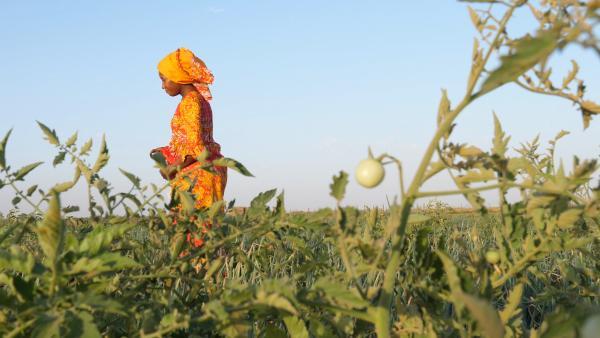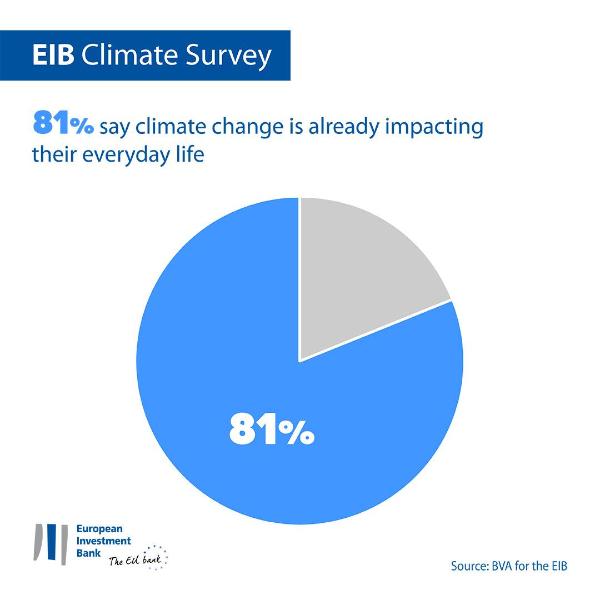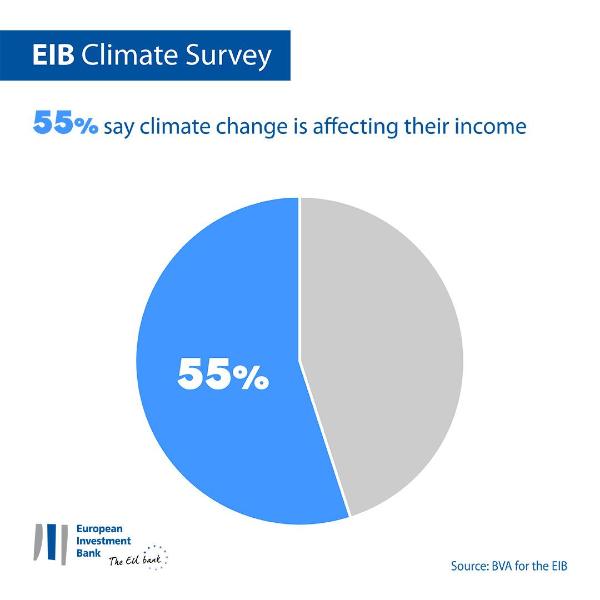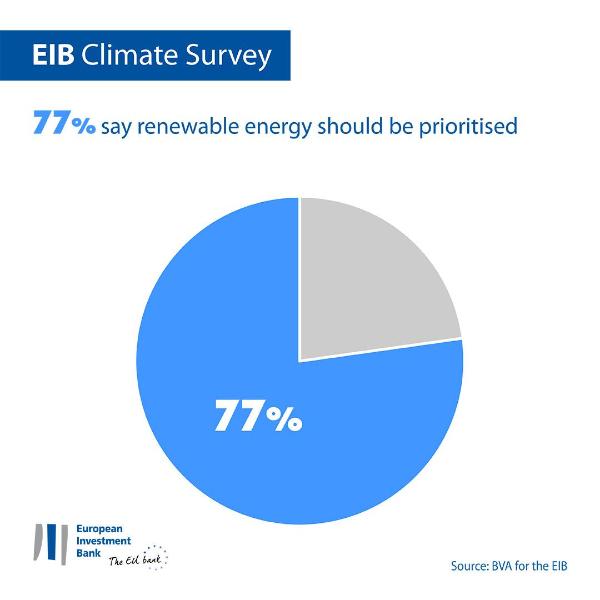
- 81% of Jordanian respondents say climate change is already affecting their everyday life.
- 55% believe that climate change and environmental damage have affected their income or source of livelihood.
- 77% of Jordanian respondents say investing in renewable energy should be prioritised.
These are some of the key findings from the first African and Middle Eastern edition[i] of the European Investment Bank’s (EIB’s) 2022 Climate Survey. The EIB is the lending arm of the European Union and the world’s largest multilateral lender for climate action projects. Since 2018, the EIB has conducted similar large-scale climate surveys across Europe, China and the United States.
Gelsomina Vigliotti, vice-president of the EIB, said: “It is a very encouraging insight from the EIB Climate Survey that three-quarters of Jordanians say renewable energy should be prioritised. The EIB has a long-established relationship with the Hashemite Kingdom of Jordan and has supported sustainable investments in water, energy, health, education, urban development and transport. The EIB has provided €779 million to help finance water supply projects, sanitation and irrigation in a country that suffers severely from water scarcity. The EIB is working closely to support the government of Jordan in reaching their target for climate actions focused on adaptation and mitigation.”
Climate change and environmental degradation
The survey results confirm that climate change has negatively affected the livelihoods of Jordanian people, with 55% stating that their income has been affected. These losses are typically due to severe drought, rising sea levels or coastal erosion, or extreme weather events such as floods or hurricanes.

Just over half of Jordanians (52% vs. the African and Middle Eastern average of 57%) say they or people they know have already taken some form of action to adapt to the impact of climate change. Some of these initiatives include investments in water-saving technologies to reduce the impact of drought and drain clearing in advance of flooding.

Investment in energy sources
When asked about the sources of energy their country should invest in moving forward, 77% of Jordanian respondents (compared with the African and Middle Eastern average of 76%) say renewable energy should be prioritised, far ahead of fossil fuels (12%).

The EIB has a long-standing relationship with Jordan, which dates back to 1979, and has provided over €2.3 billion for long-term public and private investments across the country.
Background information
About the EIB Climate Survey
Conducted in partnership with the market research firm BVA, the first African and Middle Eastern edition of the EIB Climate Survey aims to inform the broader debate on attitudes and expectations in terms of climate action.
More than 6 000 respondents – including 200 Jordanians – aged 15 and over from 10 African and Middle Eastern countries participated in the survey between 1 and 25 August 2022, with a representative panel for each of the countries polled.
More findings from the first African and Middle Eastern edition of the EIB Climate Survey: /surveys/climate-survey/5th-climate-survey/africa
About the European Investment Bank
The European Investment Bank (EIB) is the long-term lending institution of the European Union and is owned by the EU Member States. The EIB Group has adopted a Climate Bank Roadmap to deliver on its ambitious agenda to support €1 trillion of climate action and environmental sustainability investments in the decade before 2030 and to dedicate more than 50% of EIB funding to climate action and environmental sustainability by 2025. As part of the roadmap, all new EIB Group operations have been aligned with the goals and principles of the Paris Agreement since the start of 2021.
EIB Global is the EIB Group’s new specialised arm dedicated to increasing the impact of international partnerships and development finance. EIB Global is designed to foster strong, focused partnerships within Team Europe, alongside fellow development finance institutions and civil society. EIB Global brings the EIB Group closer to local people, companies and institutions through its offices across the world.
[i] Countries covered by the survey: Morocco, Tunisia, Egypt, Jordan, Kenya, South Africa, Angola, Cameroon, Senegal, and Ivory Coast.